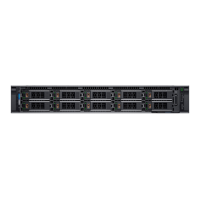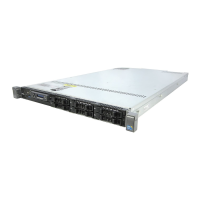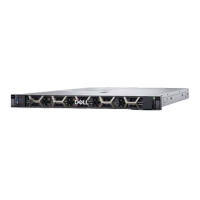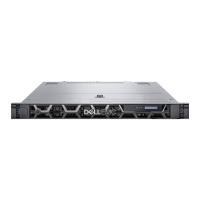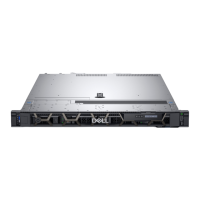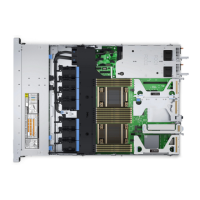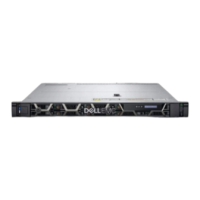Internal Dual SD Module
The Internal Dual SD Module (IDSDM) is included on mainstream 2 socket servers following the same behavior as 12G IDSDM.
Customers can use IDSDM with a single SD card in either slot or in redundant mode with two SD cards installed.
The Internal Dual SD Module (IDSDM) card provides the following major functions:
● Dual SD interface, maintained in a mirrored configuration (primary and secondary SD).
● The IDSDM card does provide full RAID-1 functionality.
● Dual SD cards are not required. The module can operate with only one card, but will provide no redundancy.
● IDSDM will enable support for Secure Digital eXtended Capacity (SDXC) cards.
● USB interface to host system.
● I2C interface to host system and onboard EEPROM for out-of-band status reporting.
● Onboard LEDs showing status of each SD card.
IDSDM New Features
The following table lists the new features of IDSDM on 13G systems.
Table 43. IDSDM New Features
IDSDM New Features
New Features Description
Support for RAID and Data Integrity 13G iDSDM implements RAID functionality. This means that at
any given time, after rebuild, contents will stay synchronized.
If RAID feature is enabled, writes to iDSDM will perform write
operation to both SD cards simultaneously.
Support to ensure data integrity during power loss conditions
is implemented.
Support for USB 3.0 (Higher Bandwidth) System will work with USB 3.0. If USB 3.0 is disabled, or if the
an error on USB 3.0 is detected, iDSDM will fall back to USB
2.0.
User Prioritized SD Slots User will be able to define which SD slot is primary.
Once primary SD slot it selected, iDSDM will perform
operation using that SD card.
If RAID is enabled, content of primary SD card will be mirrored
on secondary SD card.
Bad Block Management Unlike 12G where a single bad sector will cause SD card to
be considered “Failed”, 13G iDSDM implements more robust
mechanism for bad block management.
This mean SD cards failing on 12G might be functional on 13G
iDSDM.
Multiple read/write needs to happen before SD card is
considered to be in failed state.
No More BIOS Halt During Rebuild Unlike 12G, 13G iDSDM does not require the BIOS to halt
during POST and wait for the rebuild to complete.
Rebuild will happen in background and is much faster as
compared to 12G. An 8GB card should rebuilt in less than 30
minutes.
Enhanced Support for Mismatched SD Cards Functionality of primary SD card will not be compromised if
the secondary SD card has a different speed or lower storage.
Mismatch check will only happen if the iDSDM is operating in
RAID mode.
168 Technology and Components

